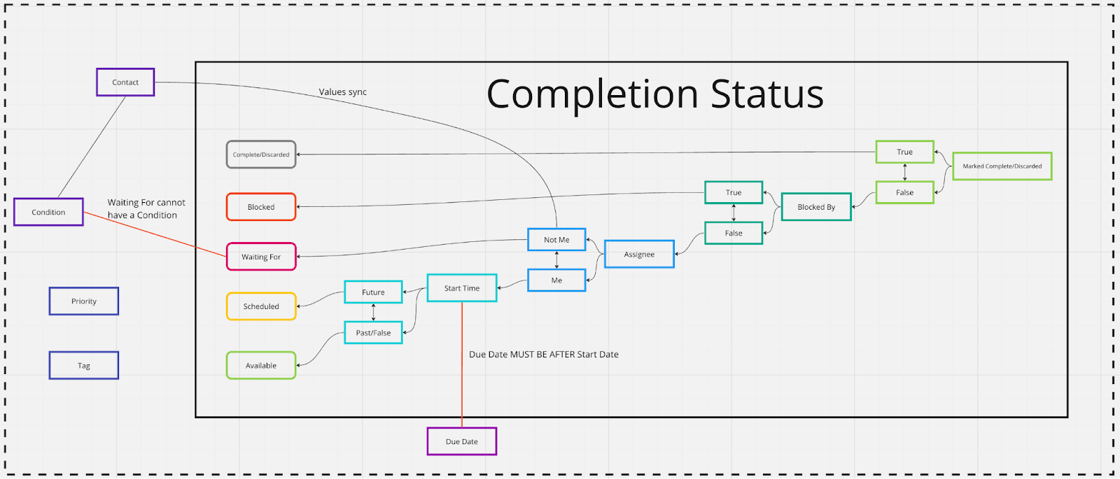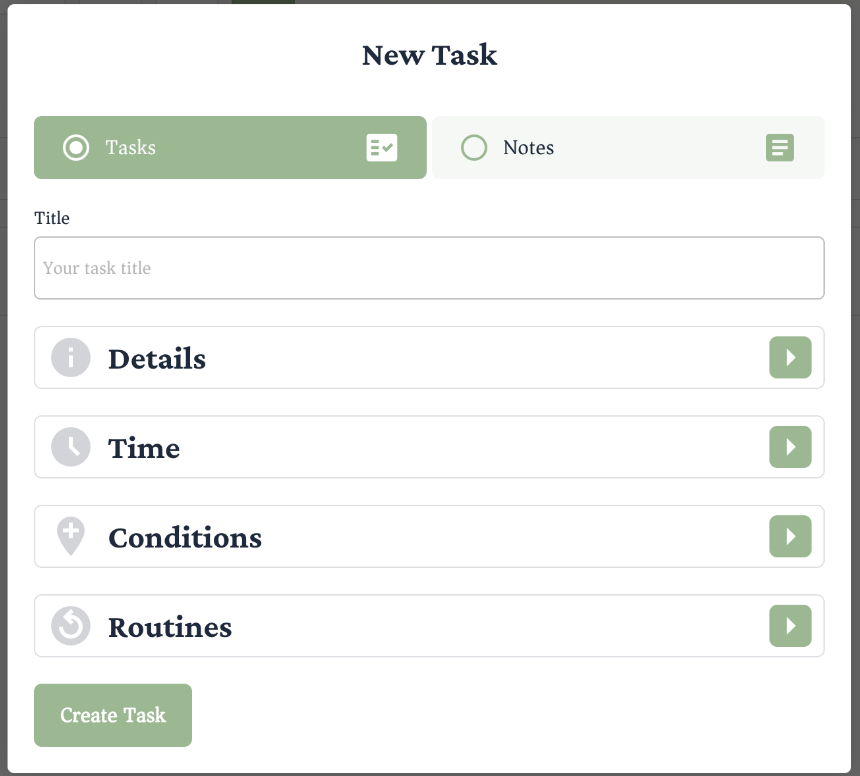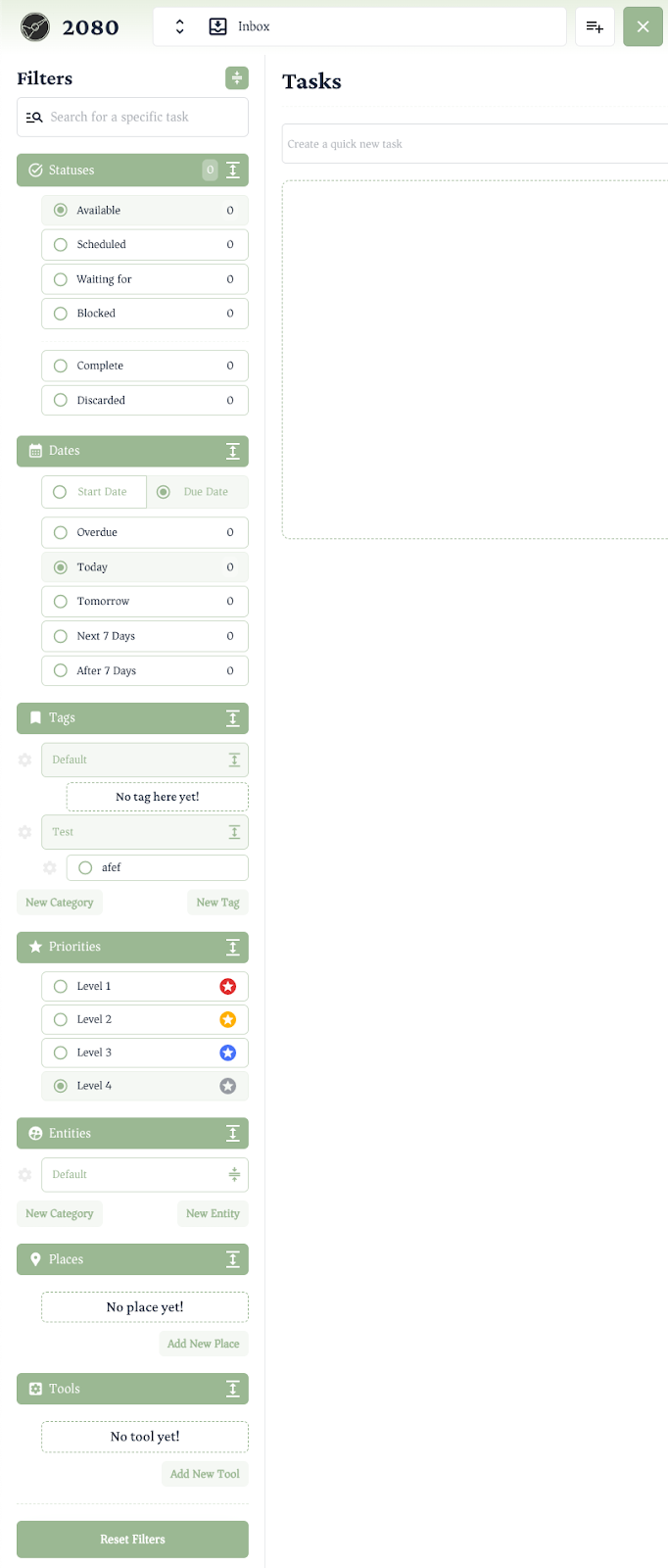In this update, you’ll get to see what we’ve learned from our research interviews, a behind-the-scenes look at how building a productivity app works, and a sneak preview of what we’ve built so far.
💡 What we’ve learned
We’ve had the honor of speaking to many of you over the past 2 weeks. In these interviews, you got the chance to share your use case, frustrations with existing productivity tech and your vision for an ideal productivity app. Here are some key takeaways we’ve learned from our interviews so far, as to what folks are looking for in a digital productivity assistant:
- 🤸 Flexibility: the ability to customize the app to your own preferences.
- 👶 Ease of use: a quick & intuitive user experience that is consistent across devices.
- 🏡 Holistic: the ability to manage your life all under one roof: tasks, notes, calendar, etc – whether that’s in-app, or via a seamless integration.
✅ Tasks: not just a checkbox!
As with most productivity apps, the ability to manage tasks is one of the most important features. Based on thousands of hours of researching hundreds of productivity apps out there and taking into account methodologies like Getting Things Done, we’ve been focusing on building our task functionality in a way that serves both beginners as well as power users. While it may appear as just a simple checkbox at first sight, folks running a more advanced system will want to be able to associate a lot more information with a task. Information such as:
- Time: start time, due time, reminders, duration – to help gauge what can be done now as well as assist with time blocking.
- Sequential projects: blockers & dependencies. Task B cannot be performed until Task A is completed. Mapping the relationships between them to create a chain of tasks that become available based on the previous one being completed.
- Assignees: keeping an overview of tasks that you cannot perform yourself, but do matter to your projects’ progress.
- Conditions: assigning tools you may need to use, people you may need to be with, or places you need to be at in order to perform a task so that you can group them by condition and breeze through similar tasks in one go.

The cool thing is that when the values for the things it checks for change, the status changes automatically. For example, if a task that is blocked by another task gets unblocked, but still has a Start Date set in the future, its completion status changes from “Blocked” to “Scheduled”. If that Start Date arrives and is now set in the past, it automatically appears in “Available”. That way, you don’t have to do anything but look at the “Available” tab, mark what’s complete and keep trust that the tool will do the heavy lifting for you when it comes to updating your to-do list.
👀 Sneak preview: new Task/Note form & Filter menu
The core basis of the 2080 is nearing completion, with a first rough UI ready to be used for testing. We’re aiming for an intuitive experience with a calming color scheme to help you destress.


Saving filters will enable you to log in to 2080, grab the info you need, then get out and be on your way to do awesome stuff. That’s our goal here. We don’t want you to play around with it for hours, but to make an impact.
📣 Spread the word
This is just an outtake of the work we’re doing in the background to build 2080: the future of personal productivity. A future that is healthy, intuitive and sustainable. If you like what you’re seeing, please share this link with as many people as you can so more people join the waitlist: https://2080.app We appreciate your support, and we’ll be back shortly with another update. ❤️
